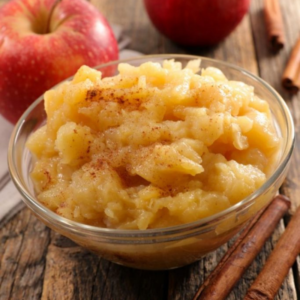I think our ancestors would be pretty surprised at how fermented foods seem to have all but disappeared from our dinner plates.
You hear about gut health all the time–leaky gut and other such 21st century maladies. Eating fermented foods is one key to making sure your gut has a chance to heal. That’s because the fermented foods I’m talking about contain “food” for the good guys in your gut that you want to feed–the stronger the army, the faster battles are defeated and ultimately, the war is won.
History Shows Us Why Cooties Are Important
Since nearly the dawn of time, humans around the world have been fermenting their food before eating or drinking it. Wine was being made at least eight thousand years ago. Milk fermentation has been happening since around 3000 BC and folks have been eating leavened bread since around 1500 BC.
Our grandmothers made sauerkraut and pickles via lacto-fermentation (using salt) where today we use vinegar. They used wild yeast (sourdough) to leaven their bread. Those types of fermentation provided us with probiotics, replenishing the good bacteria in our bodies.
Too “Clean”, Too Sanitized
Today, almost everything we eat is pasteurized.
We use antibacterial soap to get rid of “all” the dirt and germs and drink chlorinated water.
We take antibiotic drugs for every little thing, oftentimes, when we really don’t even need to.
Imbalancing Act: The Symptoms
Most of us have an imbalanced level of bacteria in our guts and that can make us sick and compromise our immune systems.
The symptoms for an imbalanced gut include:
- Indigestion–your digestive capabilities are compromised when you don’t have everyone on your team. This is why fermented foods are so important–they feed the good guys!
- Upset stomach–when your balance is off, you’re likely to feel it and your stomach let’s you know in a number of ways.
- Sleep issues–from insomnia to waking up in the middle of the night with an inability to go back to sleep. Serotonin is made in the gut and without adequate serotonin, your sleep is impaired. The ability to create serotonin is in direct proportion to the health of your gut.
- Skin issues–from acne to eczema, these are signs of a leaky gut. Some practitioners point to all inflammatory skin issues as leaky gut being the root cause.
- Autoimmune disease–researchers are finding new evidence on the impact of gut health and the immune system. An unhealthy gut is inflamed and can alter the proper function of the immune system. And when you consider that most of your immune system resides in the gut, it’s imperative you’re feeding it right.
Fermented Foods To The Rescue
Adding fermented foods to your diet will help restore those levels of healthy bacteria and it will do wonders for your well being.
Here are some good reasons to eat fermented foods:
- Improved digestion. Eating fermented foods is sort of like having it already partially digested before it hits your stomach. That allows your body to take the good out of the food without doing so much heavy lifting. When you improve digestion, nutrient absorption is naturally improved as well.
- Vitamin boost. When you ferment foods you boost their vitamin content, especially with fermented dairy products like kefir.
- Gut health. You need good bacteria in your gut to avoid yeast infections, irritable bowel syndrome, constipation, gluten intolerance, lactose intolerance and lots of other nasty things. Eating fermented foods can help strike the right balance.
- Flavor. Why do we like drinking wine with our cheese and eating sauerkraut on our hotdogs? Because it’s delicious, that’s why! Fermented foods are healthy and delicious.
Fermenting food is inexpensive, requiring very basic ingredients, salt and mason jars and it helps to preserve foods for a long period of time.
To get more fermented foods into your diet, drink kombucha (a fermented tea you’ll find at Asian markets) or kefir. Eat naturally fermented condiments that you buy at the store or make your own at home. Kim chi, sauerkraut, salsa and pickles are all examples of fermented condiments you can easily make yourself.
Here’s a different recipe for Fermented Apple Pear Sauce:

Fermented Apple Pear Sauce
Ingredients
- 2 cups diced apples
- 1 cup diced pears
- 1 teaspoon ground cinnamon
Instructions
- Combine all ingredients in your food processor and process until as smooth or as chunky as you like your sauce. Add more water if it seems too thick or has trouble being pureed.
- Transfer to a jar, leaving an inch between the sauce and the top of the jar.
- Seal jar tightly with a lid and store in a warm place for at least 3 days.
- Taste it and when it suits you, transfer to the fridge.
- Chill and enjoy!
Don’t forget, you can add probiotics to help out tremendously!